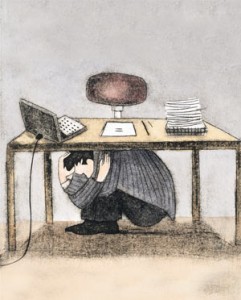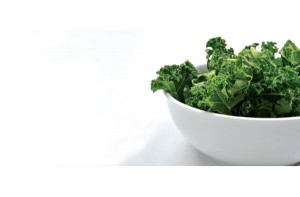 When it comes to being in an environment with loud noises, strong scents, or bright lights…are you sensitive? Furthermore, do you feel overwhelmed and frazzled when you have too much to do—in a limited amount of time? In a school setting or at work, do you have difficulty performing while being watched?
When it comes to being in an environment with loud noises, strong scents, or bright lights…are you sensitive? Furthermore, do you feel overwhelmed and frazzled when you have too much to do—in a limited amount of time? In a school setting or at work, do you have difficulty performing while being watched?
If so, then you may benefit from learning more about the traits of a “highly sensitive person” (HSP). Psychologist Dr. Elaine N. Aron coined the term “highly sensitive person” in 1996. Since then, she has written four books on this fascinating topic (she’s a “highly sensitive person” herself).
According to Dr. Aron, and other clinical researchers, about a fifth of the population are highly sensitive people who process “sensory data”—sounds, sights, smells, and physical sensations—deeply and thoroughly. As a result, the thorough sensory data processing style of HSPs may trigger over-stimulation of the nervous system…that can lead to stressful feelings of overwhelm.
Now, on the other hand, there are plenty of positive traits that result from being an HSP. For example, “highly sensitive people” are often:
- Creative
- Intelligent
- Intuitive & empathic
- Deep “thinkers” & “feelers”
Okay, now that I’ve accentuated numerous positive traits of HSPs, I’ll admit that I am a “highly sensitive person.” Yep, I found out that I shared many of the associated traits when I attended one of Dr. Aron’s lectures and book-signing events back in the nineties.
Meanwhile, in a world that appears to thrive more and more on intensity — it’s important to maintain balance. It’s vital that HSPs have access to “self-care tools.” For example, planning ahead regarding how to handle sensory-intense situations and to protect themselves from feeling over-stimulated by their surroundings …is important for HSPs.
~ Three TIPS for “Highly Sensitive People” ~
- When in Large Groups—Take Frequent Breaks Because HSP nervous systems are prone to hyper-arousal in groups—due to high levels of sensory stimulation—a short break can be a good self-care strategy. For instance, a “bathroom break” is an opportunity for HSPs to not only use the facilities, but also to splash cool water on their faces, and relax by taking slow, deep breaths. Bringing their focus back to themselves (and the present moment) in a less-stimulating environment is one great way to momentarily… retreat and recharge!
- Divide Large Tasks into Small Steps To avoid feeling overwhelmed by a long “To-Do” list, HSPs should divide large tasks into small steps. Then, they can prioritize the asks. To make the tasks even more manageable, they can create two separate lists. Next, they should focus only on the first list and take small steps to achieve completion of each task. Whittling down one manageable “To-Do” list at a time may help the HSP avoid a stress-induced “freeze response” (aka: “analysis paralysis”). That way, productivity and personal satisfaction…will keep flowing.
- Carry a Pair of Earplugs* HSPs often feel stress-levels rise when they are in noisy environments. So, carrying a pair of earplugs is another great “self-care” strategy. For example, at movie theatres or live concerts, sometimes the high-tech sound systems are turned up to a volume that’s “a bit too much” for an HSP’s ears. That’s when reaching for a pair of foam earplugs can be a blessing. Adjusting the foam inside the ears can help to control how much sound is received. As a result, HSPs can “dial down” auditory intensity…and “dial up” enjoyment!
Finally, due to sharing the gifts—and the challenges—of being a “highly sensitive person,” I have lots of great tools to offer my clients. If you resonate with the HSP traits that I’ve described, then, feel free to call me…and strengthen your important “self-care” strategies.
*Foam earplugs housed in a handy carrying case (on a keychain) are available online from a company called Flents: Key’p It Quiet.
—————–
Join Trina and attend her Walnut Creek workshop for women and men: Managing Emotional and Compulsive Eating—John Muir Women’s Health Center: Wednesday, October 17, 6:30-8:30 pm. Cost: $40. Seats are limited—register today for this inspiring workshop: (925) 941-7900 option 3. For more info, go to www.TrinaSwerdlow.com & click on “Private Sessions & Workshops.”
———————————–
Trina Swerdlow, BFA, CCHT, is a Certified Clinical Hypnotherapist, an artist, and the author and illustrator of Stress Reduction Journal. She currently has a private practice in downtown Danville. You can reach her at: (925) 285.5759, or info@TrinaSwerdlow.com.
Certified Clinical Hypnotherapy services in California can be alternative or complementary to licensed healing arts, such as psychotherapy.





